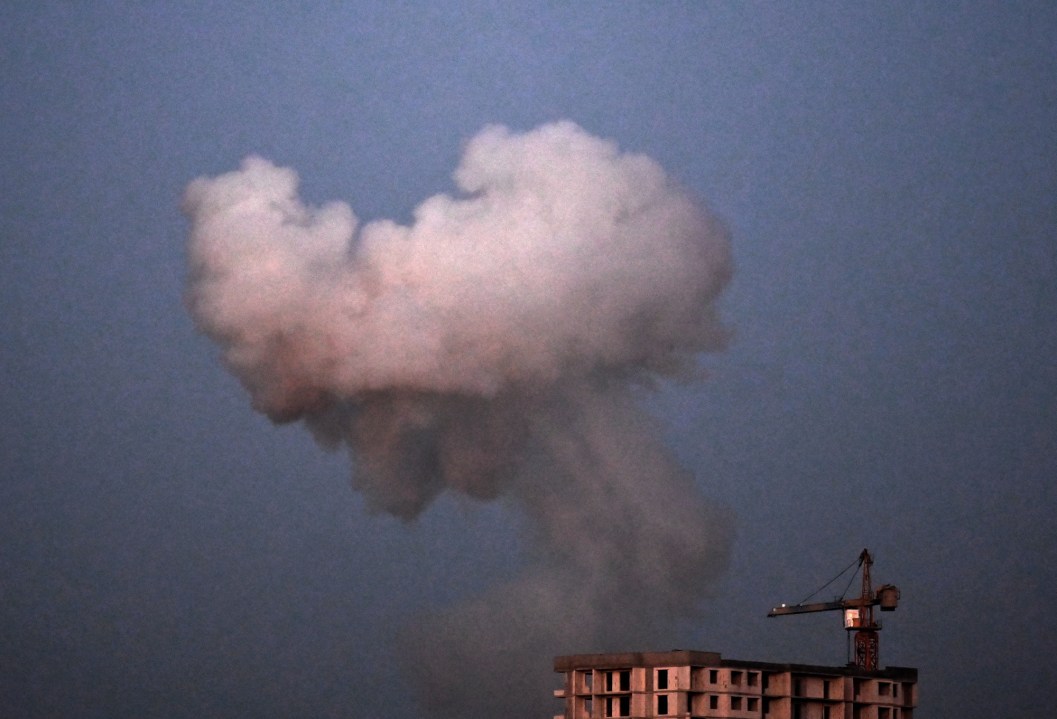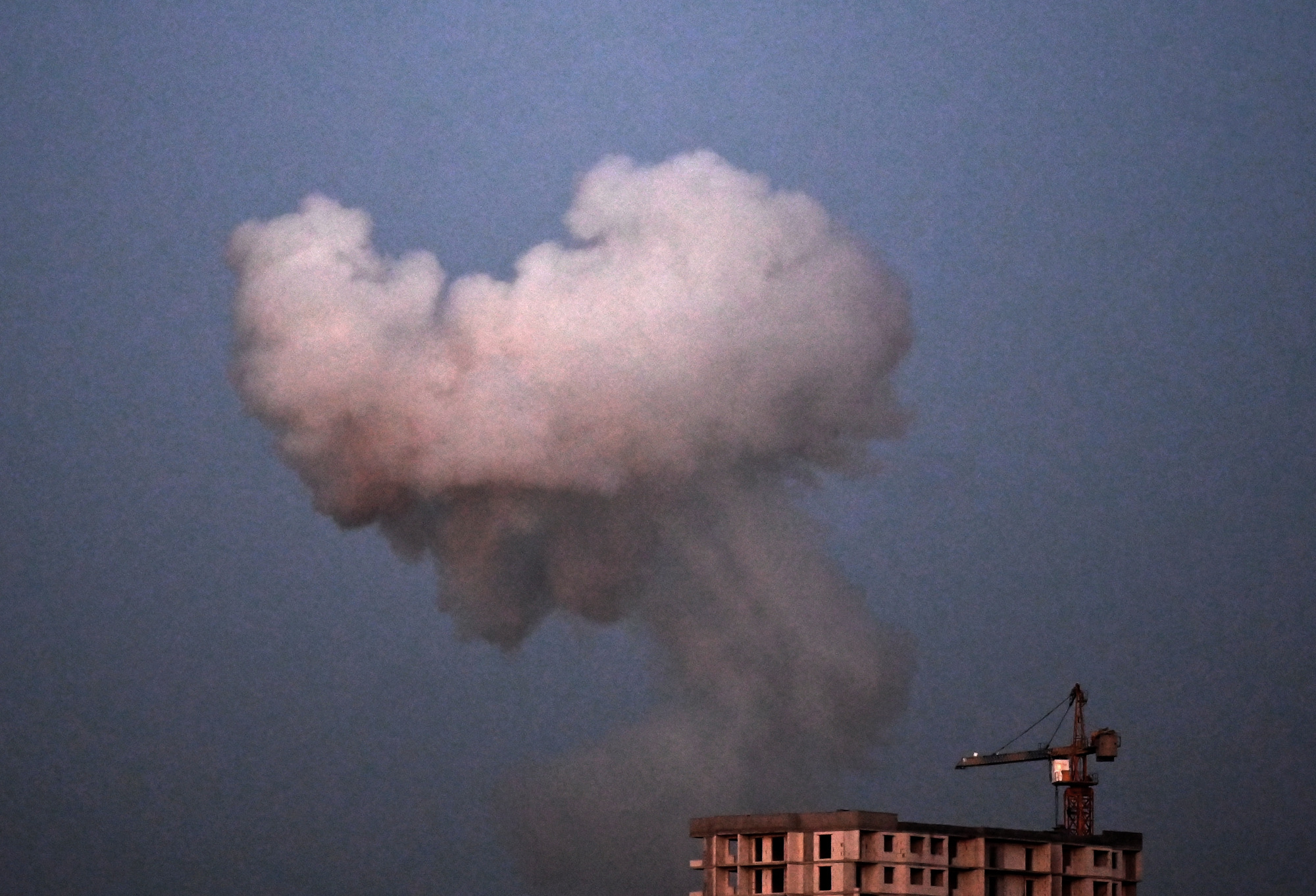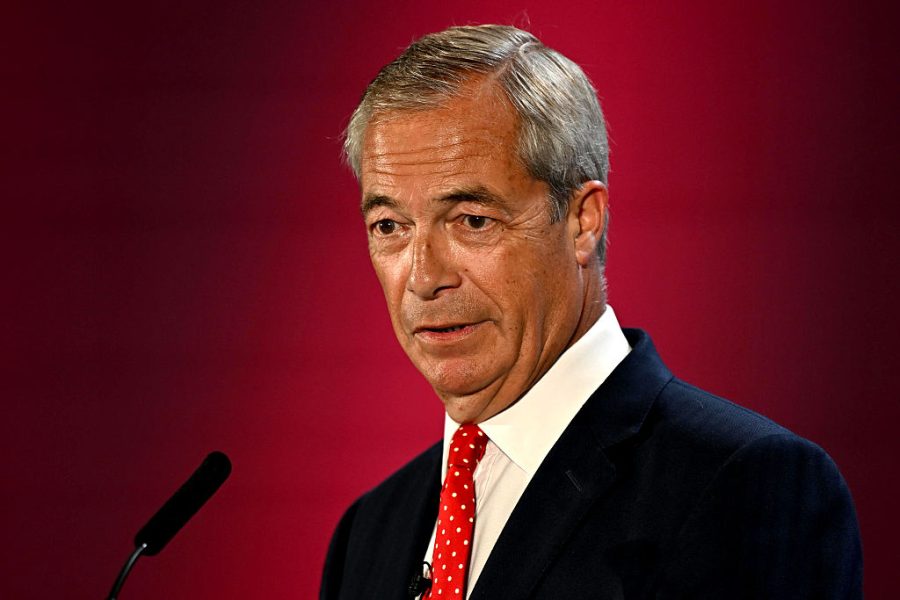Is Moscow targeting European institutions in Kyiv in the hope of ‘sabotaging peace’ as Keir Starmer has claimed? Putin probably thinks he’s actually doing the opposite.
Last night saw another massive attack on Ukraine: 31 missiles and 629 drones, of which five and 66 got through the country’s air defences, respectively. Many hit Kyiv, where 15 civilians were reportedly killed, including four children. However, particular diplomatic furore has been generated by the two missiles which, at 5:40 a.m., hit a block on Zhylyanska Street, south-west of the centre. This block, stretching across the adjacent Korolenkivska Street, houses both the British Council offices and also the European Union delegation offices. Both were damaged, although fortunately without fatalities, although a night security guard at the British Council was hurt.
Putin appears genuinely to believe the UK and Europe are not allowing Kyiv to ‘see sense’
The response has been predictable and understandable. Starmer beat his breast that ‘this bloodshed must end,’ and called these ‘senseless Russian strikes.’ The EU’s foreign policy chief, the fiercely anti-Moscow Kaja Kallas, trumpeted that ‘while the world seeks a path to peace, Russia responds with missiles,’ with a ‘deliberate choice to escalate and mock the peace efforts.’
The strikes on civilian targets are clearly indefensible, although some were likely not deliberate, but the result of missiles and drones being hit by air-defence fire (they or their debris has to come down somewhere), being poorly targeted or sent off course by jamming. None of this in any way excuses Moscow for its willingness to send ordnance into towns and cities, but it does mean that it can sometimes be difficult to be certain what was a specifically targeted strike intended to send a message and what was incidental catastrophe.
There can be little such ambiguity here. The block was hit by two missiles, whether Iskander ballistic missiles or Kh-101 cruise missiles. These are accurate weapons, and the fact that two hit in quick succession makes it extraordinarily unlikely that this was just bad luck.
However, the talk of Putin launching such attacks to sabotage or even mock the peace process – such as it is – is political rhetoric. If Putin doesn’t want peace, he just can keep fighting; if he wants to pretend to accept the western notion of how to make peace, he can stop the attacks and engage in a performative display of delegations, proposals and fine rhetoric. Instead, he is engaging in negotiations à la Russe. Putin’s refusal to countenance a ceasefire before any peace talks, which would give Kyiv breathing space, is because he believes in war and peace – in continuing military operations to pile on pressure, even if any meaningful negotiations take place.
Putin is under some pressure himself, especially as the Russian economy slides towards recession, but this is not enough to threaten his position or force him to end the war. Yet it is enough that he appears at least willing to see if a deal which suits him – by allowing him to trumpet his success in defying Nato and ‘saving’ eastern Ukraine – is on the table. But he is waiting for the other side to make a move and signal a willingness to accept his terms, and perfectly willing to walk away if this doesn’t happen.
In this context, whom does he see as the main obstacles to a deal? Europe and the UK. Given Putin’s continuing refusal to see the Ukrainians as having genuine agency, he appears genuinely to believe the UK and Europe are not allowing Kyiv to ‘see sense.’ The notion of a ‘coalition of the willing’ and talk of a western ‘peacekeeping force’ numbering tens of thousands of troops may look like a fantasy, but to the Russians it demonstrates two things: a continuing determination to see Nato troops in Ukraine, and an Anglo-European desire to derail any potential deal by making demands they know full well Putin will reject. The idea that Boris Johnson did the same in April 2022 when he visited Kyiv in the wake of talks in Istanbul is largely mythical, as Zelensky was already planning to reject their terms, but it remains powerful in Moscow.
The British Council was banned in Russia in June, accused of being a front for espionage and subversion. With its offices and the EU delegation so close together, how better symbolically to warn both London and Brussels to back off? Here’s the irony: in Putin’s ruthless bloody-handed diplomatic style, he presumably thinks that he is furthering the prospects of peace rather than sabotaging them. Just peace on his terms.









Comments